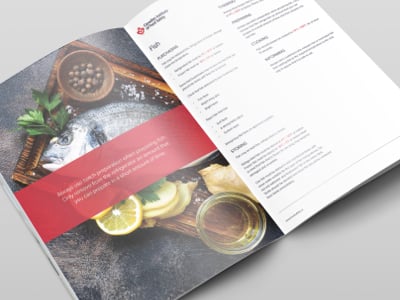
As E. coli cases reach 264, a shared kitchen used by Calgary daycares faces scrutiny for health violations, including cockroach infestations and unsafe food practices. Dr. Mark Joffe, Alberta's chief medical officer, says the increase in pediatric ER visits prompted the inspection. Some children have developed kidney-affecting conditions due to the infection.
Alberta Health Services (AHS) is still investigating the cause. Their recent inspection report cites multiple health issues, including improper food handling and storage. The kitchen remains closed until cleared by AHS.
Kent Hehr, vice president of Fueling Brains, says their affiliated catering service is supervised by a certified chef. Communication with affected families remains a priority.
Of the hospitalized patients, 22 have developed hemolytic uremic syndrome, a severe E. coli-induced condition. Six are receiving dialysis.
Various agencies, including the Canadian Food Inspection Agency, are supporting the investigation, while the Alberta NDP calls for a full inquiry.
What Is E. Coli?
E. coli, short for Escherichia coli, is a type of bacteria that lives in the intestines of humans and some animals including cattle, goats and sheep. While some types of E. coli bacteria are harmless, others cause food poisoning and illnesses such as pneumonia and urinary tract infections.
The type of E. coli involved in this outbreak, Shiga toxin-producing E. coli (STEC), is particularly dangerous for young children and the elderly.
How is it Transmitted?
The transmission of this type of E. coli occurs through the consumption of contaminated products, such as lettuce, sprouts, salami, and unpasteurized dairy. People can also transmit E. coli to others by neglecting to practice proper hand hygiene, especially after using the restroom.
What are the Symptoms?
Symptoms of E. coli can include:
- nausea
- vomiting
- headache
- mild fever
- severe stomach cramps
- watery or bloody diarrhea
These symptoms typically appear one to ten days after eating or having direct contact with a contaminated product.
In certain cases, especially in children under five, infection can progress to hemolytic uremic syndrome (HUS), a severe and life-threatening condition. HUS can result in kidney damage or failure, along with other critical complications. Treatment often entails hospitalization, including blood transfusions, plasma exchange, or kidney dialysis.
Food Safety Approaches Can Prevent the Spread
Preventing E. coli infection involves practicing good hygiene and taking precautions when handling and consuming food. Here are a few ways businesses that handle or serve food can prevent the spread:
- Hand Hygiene: Ensure that all staff members, including kitchen and serving staff, practice thorough handwashing with soap and warm water for at least 20 seconds before handling food, after using the restroom, and after touching potentially contaminated surfaces.
- Food Handling Protocols: Follow strict food handling guidelines to minimize the risk of cross-contamination. Use separate cutting boards, utensils, and prep areas for raw and ready-to-eat foods. Cook ground beef, poultry, and other meats to recommended internal temperatures (e.g., 160°F or 71°C for ground beef) using a food thermometer to verify.
- Safe Sourcing: Source ingredients from reputable suppliers who adhere to food safety standards and regulations.
- Proper Storage: Store perishable foods at safe temperatures, typically below 40°F (4°C) in refrigeration and above 140°F (60°C) for hot holding. Promptly refrigerate leftovers and ensure proper labelling with dates for easy monitoring.
- Raw Product Handling: Avoid using unpasteurized dairy products or raw eggs in recipes unless the safety of the product can be guaranteed. Maintain strict hygiene when handling raw products and their containers, disposing of packaging safely.
- Pest Control: Implement robust pest control measures, including regular inspections, sealing entry points, and safe pesticide application to prevent infestations, especially by insects like cockroaches.
- Cleaning and Sanitization: Establish a rigorous cleaning schedule for kitchen equipment, surfaces, and utensils using food-safe disinfectants. Pay special attention to high-touch surfaces and areas prone to contamination.
- HACCP (Hazard Analysis and Critical Control Points) Plan: Develop and implement a HACCP plan that identifies potential hazards in your food production process and outlines preventive measures and corrective actions.
- Stay Informed: Monitor food recalls and health advisories regularly, and take immediate action if any recalled products are in use or in your storage.
- Regular Inspections: Conduct regular self-inspections to identify potential issues and rectify them promptly.
- Communication and Education: Foster a culture of food safety within your establishment by encouraging open communication among staff members and regular training updates. Regularly educate employees about proper handwashing, safe food handling, and the importance of reporting illness symptoms.
Boost Safety Through Training
The absolute best way to prevent food-borne illness outbreaks is through proper training that covers all food safety techniques and practices. The Canadian Institute of Food Safety (CIFS) provides food safety and food handler training that can help you protect your customers and business — and assist in preventing the spread of food-borne illnesses. Enrol in the Official CIFS Food Handler Certification Course to ensure employees have the robust knowledge and skills required to keep customers safe.




